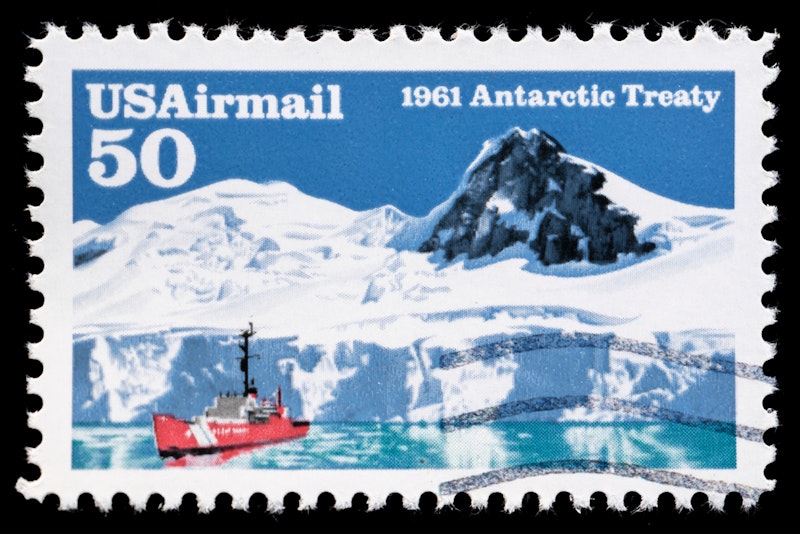Study Notes
GCSE Geography | Management of Cold Environments (Cold Environments 10)
- Level:
- GCSE
- Board:
- AQA, Edexcel, OCR, Eduqas
Last updated 17 Oct 2024
Cold environments are fragile so need careful management. There are a range of international, national and local strategies in place to try to balance conservation and development.
International level strategies
International agreements and treaties are important in protecting cold environments and their ecosystems. In 1959 the Antarctic Treaty was signed by countries who all claimed to own part of Antarctica. Antarctica is recognised as the largest wilderness in the world so needs protecting from large-scale development. The Antarctic Treaty is widely viewed as one of the most successful pieces of legislation in history and has prevented economic development, despite the abundance of valuable resources, and thus has protected this fragile environment effectively. The treaty recognises the vital role that Antarctica plays in scientific research, particularly with vital studies into climate change. It also controls the level of tourism taking place, ensuring that the industry follows strict guidelines so there is minimal disturbance to wildlife.
In 1996 Canada, Russia, the USA, Norway, Sweden and Finland collectively formed the Arctic Council, building on the success of the Antarctic Treaty. The aim is to deliver sustainable development throughout the entire Arctic region and the council would like legal powers to set fishing and hunting quotas.
The 1986 International Whaling Convention set a global ban on commercial whale hunting – this has seen a 3% growth in the number of bowhead whales year on year - they were heavily exploited by whaling in the past to the point of extinction, but are now thriving in the Arctic Ocean.

National level strategies
Protecting wilderness areas is a challenge for national governments as they have to balance the interests of many different groups, from indigenous people to transnational corporations. This is clearly the case in Alaska – when global oil prices are low, the state runs short of money, making some politicians call for an increase in oil production to increase Alaska’s income. However, when President Barack Obama was in office he chose to protect ‘the integrity’ of the Alaskan wilderness and pushed through a vote with the US Senate, banning oil exploration in the Arctic National Wildlife Refuge (ANWR), so currently 12 million acres of wilderness are protected from exploitation.
Additionally there is the National Environmental Policy Act, which was passed by the US government and states that those involved in the extraction and transportation of oil must protect the environment within which they operate, and they have to recognise the rights of indigenous communities, ensuring that their activities don't threaten traditional ways of life. This act has also seen the creation of the 9 million hectare Western Arctic Reserve. Oil exploration and drilling is not allowed to take place in certain parts of this wilderness area, protecting the habitats of caribou, millions of migratory birds, musk ox, wolves and even polar bears.
10% of all land across the Arctic region is legally protected through laws from the different countries, for example, laws that control pollution from heavy industry.

Local level strategies - non-governmental organisations
There are lots of non-governmental organisations (NGOs) that work to conserve the environment and support the interests of groups of people in wilderness areas, such as the World Wildlife Fund (WWF) which provides local communities with scientific information, expertise and resources to help them conserve these fragile environments. The WWF works with scientific research organisations that carry out work to protect important species such as polar bears and narwhals, and with oil companies, indigenous people and the government to promote sustainable development throughout the Arctic Circle.
Another group working in the Arctic is Greenpeace – in 2014 they campaigned in the Russian owned part of the Arctic Ocean to end oil exploration. The Russian government retaliated by arresting and imprisoning them. They have since argued for the need to establish a 'global sanctuary' which would make all resources off limits, however this would also mean that indigenous communities would be unable to use resources for their own economic development.
You might also like

Who Owns Antarctica?
13th January 2016

The Earth's Largest Volcanic Region - Is UNDER the Ice
14th August 2017
Iceberg calving event in Antarctica
1st March 2021
Global Governance - A-Level MCQ Quiz
Quizzes & Activities
Cold Environments | AQA GCSE Geography
Quizzes & Activities